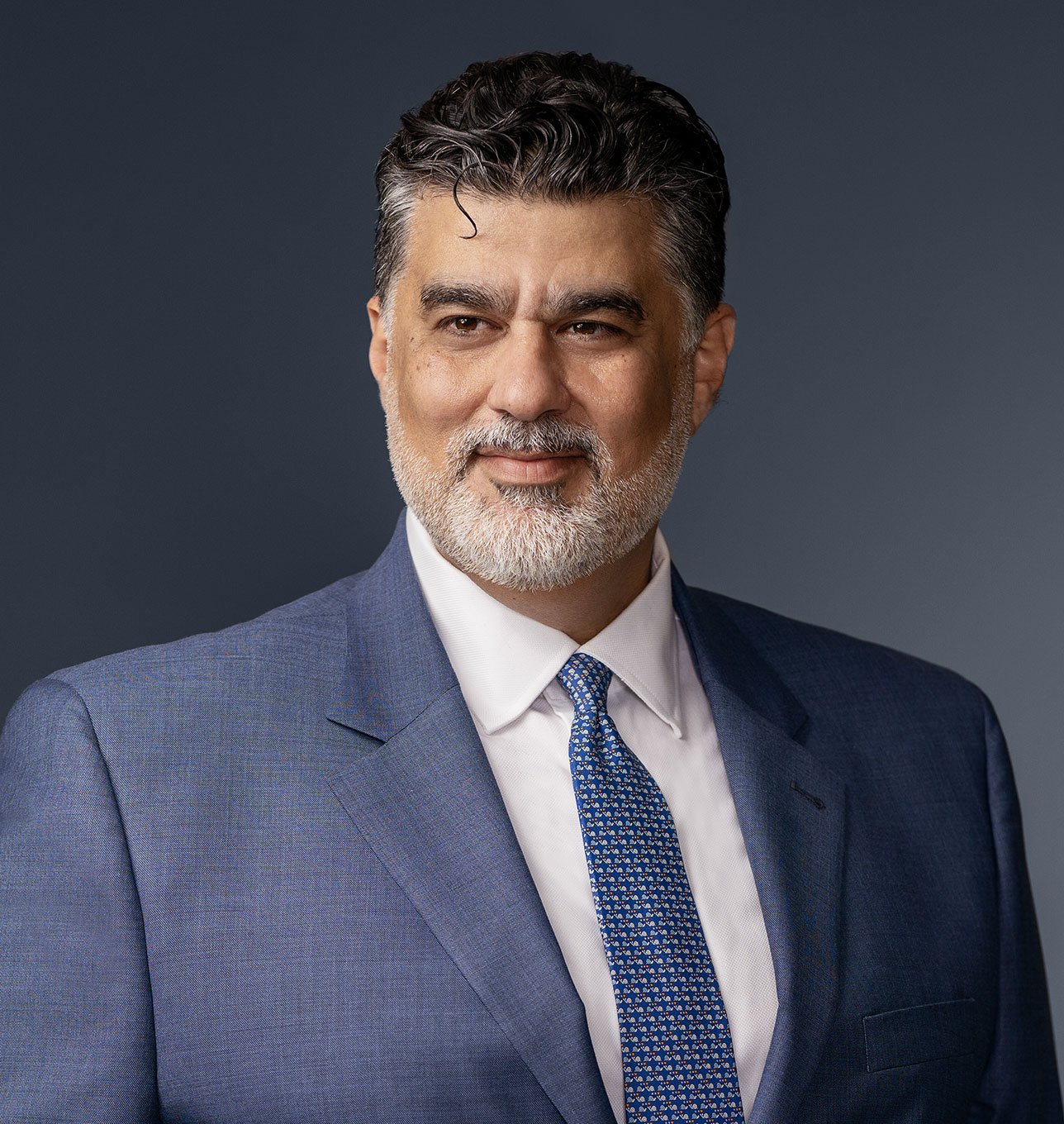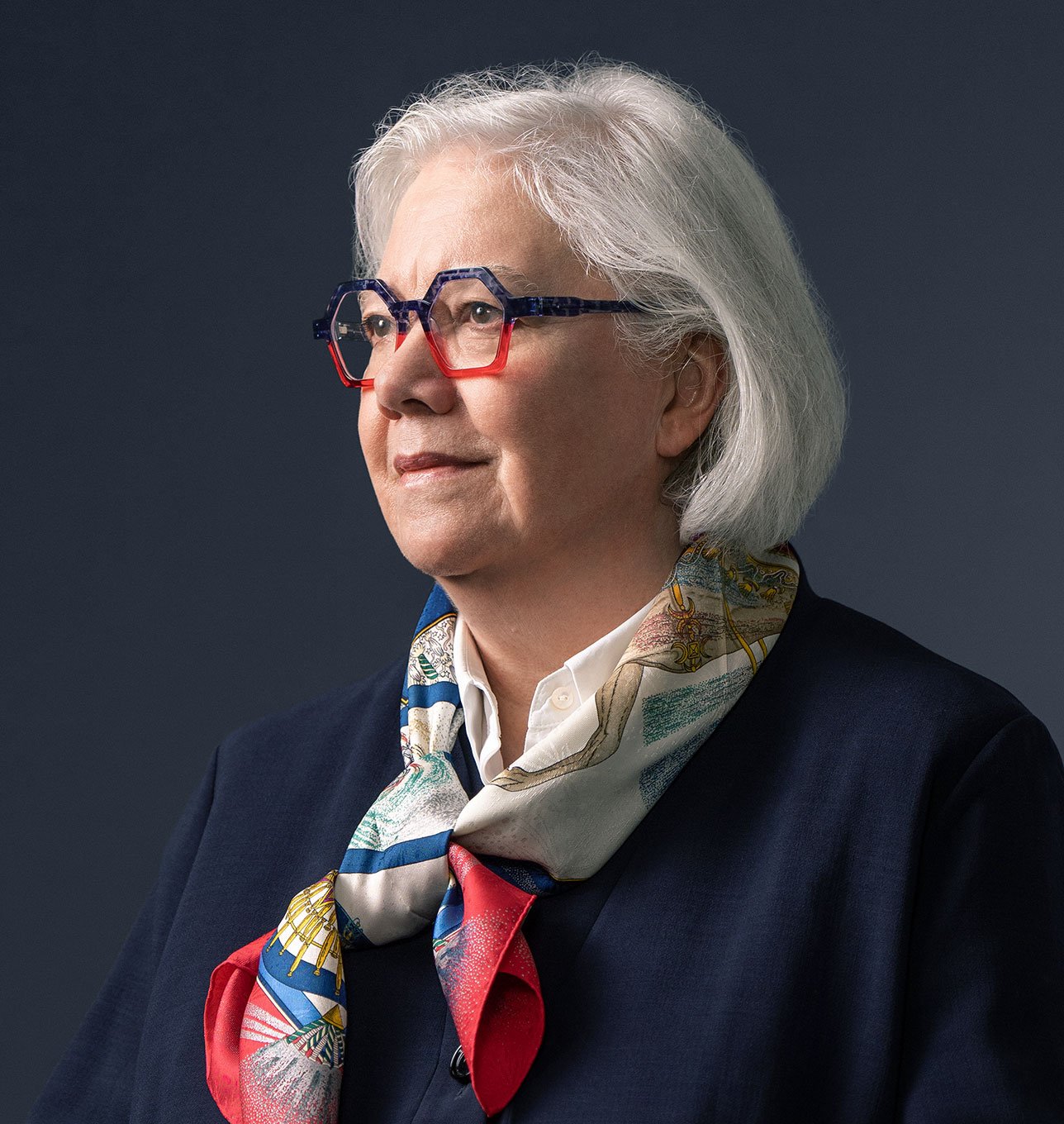February 06, 2023
Sanctions Weekly Update – Ukraine/Russia Conflict – February 6, 2023
US Sanctions | EU Sanctions | UK Sanctions | Russia/Ukraine Sanctions | Other Notable Developments
Week of February 6, 2023
- OFAC Implements Price Cap, Issues Detailed Guidance: On February 3, the Department of the Treasury's Office of Foreign Assets Control (OFAC) has published a determination pursuant to section 1(a)(ii), 1(b), and 5 of Executive Order (E.O.) 14071 and a determination pursuant to section 1(a)(ii) of Executive Order (E.O.) 14071 to implement the price cap policy for crude oil and petroleum products of Russian Federation origin. Additionally, OFAC has published Guidance on Implementation of the Price Cap Policy for Crude Oil and Petroleum Products of Russian Federation Origin, which updated upon the Preliminary Guidance issued on December 30, 2022 and provides far greater detail on safe harbors, compliance, and licensing. Read more>>, Read more>> and Read more>>
- OFAC Issues Russia-related General Licenses and FAQs: Over the course of this week, OFAC issued the following Russia-related general licenses and FAQs:
- General License 56A: On February 3, OFAC issued General License 56A, which is updated to take into account the new price cap on petroleum products, replacing and superseding General License 56. Read more>>
- General License 57A: On February 3, OFAC issued General License 57A, which is updated to take into account the new price cap on petroleum products, replacing and superseding General License 57. Read more>>
- FAQ 1113 on Estates Including Russian Securities: On February 8, OFAC released FAQ 1113, which clarified that where a decedent’s estate includes securities issued by non-blocked Russian entities, the new investment prohibitions in E.O. 14066, E.O. 14068, or E.O. 14071 do not prohibit the transfer of such securities, through inheritance, to the relevant beneficiary of the decedent’s estate. OFAC added a reminder that blocked securities in a decedent’s estate must nonetheless remain blocked and that the administration of a decedent’s estate requiring the transfer of blocked securities would require a specific license from OFAC. Read more>>
- Secretary Yellen Welcomes New Russian Oil Price Cap: On February 3, the US Secretary of Treasury Janet Yellen released a statement following the announcement by the price cap coalition to set price caps on the price of seaborne Russian refined oil products. “I applaud the G7 price cap coalition for jointly setting caps on the price of seaborne Russian refined oil products,” Secretary Yellen stated, adding that “The caps we have just set will now serve a critical role in our global coalition’s work to degrade Russia’s ability to prosecute its illegal war. Combined with our historic sanctions, we are forcing Putin to choose between funding his brutal war or propping up his struggling economy.” Read more>>
- US and UK Sanction Members of Russia-Based Trickbot Cybercrime Gang: On February 9, the US, in coordination with the UK, designated seven individuals who are part of the Russia-based cybercrime gang Trickbot. This action pursuant to E.O. 13694, as amended by E.O. 13757, for the individuals’ involvement in a cyber-enabled activity that poses a significant threat to the national security, foreign policy, or economic health or financial stability of the US. This action also represents the very first sanctions of their kind for the UK., and result from a collaborative partnership between the US’s OFAC and the UK’s Foreign, Commonwealth, and Development Office; National Crime Agency; and His Majesty’s Treasury to disrupt Russian cybercrime and ransomware. “Cyber criminals, particularly those based in Russia, seek to attack critical infrastructure, target US businesses, and exploit the international financial system,” said US Under Secretary for the Treasury for Terrorism and Financial Intelligence Brian Nelson. “The United States is taking action today in partnership with the United Kingdom because international cooperation is key to addressing Russian cybercrime.”Read more>> and Read more>>
- Treasury Sanctions Board of Directors of Iranian UAV Manufacturer: On February 3, the US Department of the Treasury’s Office of Foreign Assets Control (OFAC) designated eight senior executives of Paravar Pars Company (Paravar Pars), an Iran-based firm that was previously sanctioned by the United States and European Union for manufacturing Shahed-series unmanned aerial vehicles (UAVs) for Iran’s Islamic Revolutionary Guard Corps Aerospace Force (IRGC ASF) under Executive Order (E.O.) 13382. The new designations build on efforts to sanction Iranian UAV manufacturers that transfer weapons to the Russian military. OFAC is also identifying two Islamic Republic of Iran Navy (IRIN) vessels, the IRIS MAKRAN and the frigate IRIS DENA, as property in which the Government of Iran has an interest. Read more>> and Read more>>
- Deputy Secretary of the Treasury Praises Efficacy of Sanctions on Russia: During a meeting with sanctions and foreign policy experts on February 10, Deputy Secretary of the Treasury Wally Adeyemo praised the efficacy of the current US sanctions program on Russia in disrupting Russia’s military supply chain and cutting the Russian government off from funding used in the war. Deputy Secretary Adeyemo shared that in the weeks and months ahead, Treasury will increase its focus on countering sanctions evasion, including by targeting facilitators and third-country providers that may wittingly or unwittingly help Russia replenish the supplies and material it desperately needs to support its military.Read more>>
- Biden Administration Announces Additional Security Assistance for Ukraine: The US announced on February 3 two new security assistance packages to help Ukraine continue to defend itself. These packages include critical air defense and counter-drone capabilities to help Ukraine defend its people, as well as armored infantry vehicles and more equipment that Ukraine is using so effectively, including Javelin anti-tank missiles, artillery ammunition, and conventional and long-range rockets for US-provided HIMARS. The Presidential Drawdown is the thirty-first such drawdown of equipment from Department of Defense inventories for Ukraine that the Biden Administration has authorized since August 2021.Read more>> and Read more>>
- US Warns Middle East Allies in Light of Role in Russian Sanctions Evasion: On February 3, CNN reported that Under Secretary of the Treasury for Terrorism and Financial Intelligence Brian Nelson met with their senior officials and ministries during his visit to the UAE, where he discussed “rooting out evasion of US sanctions, particularly on Russia and Iran,” as well as the US’ “commitment to take additional actions against those evading or facilitating the evasion of sanctions.” This comes after the US Treasury’s earlier warning that “individuals and institutions operating in permissive jurisdictions,” including in the UAE and Turkey, risk losing access to G7 markets for doing business with sanctioned entities or not conducting appropriate due diligence against illicit finance. Read more>>
- Treasury under Secretary Speaks with Turkish Banks on Implementation of Russian Sanctions: While in Istanbul on February 3, the US Department of the Treasury’s Under Secretary of the Treasury for Terrorism and Financial Intelligence Brian Nelson met with the Banks Association of Turkey to discuss the implementation of international sanctions on Russia for its war against Ukraine. He urged Turkish businesses and financial intuitions to address vulnerabilities that are exploited by Russia to circumvent international sanctions notwithstanding the Turkish reliance on Russian energy, hinting at “reputational and sanctions risks” in the Turkish private sector should the “marked rise” in exports and re-exports to Russia continue. Read more>>
- USAID Delivers Mobile Gas Turbine Power Plant to Ukraine to Meet Electricity Needs: On February 7, USAID Deputy Administrator Isobel Coleman announced during her visit to Kyiv that USAID has provided the Government of Ukraine with a mobile gas turbine power plant purchased from General Electric (GE). The US-manufactured mobile power plant has a total output capacity of approximately 28MW, which is enough to provide the equivalent electricity to at least 100,000 homes. The mobile power plant can be operated in different cities or regions depending on need, strengthening Ukraine’s energy security amid the Russian Federation’s continuing strikes against critical infrastructure. Read more>>
- EU and G7 Partners Agree Price Cap on Russian Petroleum Products: The European Union – together with the international G7+ Price Cap Coalition – have adopted further price caps for seaborne Russian petroleum products (such as diesel and fuel oil). This decision will hit Russia's revenues even harder and reduce its ability to wage war in Ukraine. It will also help stabilise global energy markets, benefitting countries across the world. Read more>> and Read more>>
- EU Provides Guidance on Oblasts: On 7 February 2023, the Commission updated its FAQ on oblasts. The Commission’s update concerns one question on the process by banks of transactions in connection with trade done in the Donetsk, Kherson, Luhansk and Zaporizhzhia oblasts. Read more>>
- EU Provides Guidance on Oil Imports: On 4 February 2023, the Commission updated its FAQ on oils imports. The Commission’s update concerns one question on crude imported by pipeline or on the basis of a derogation granted by national competent authorities. Read more>>
- EU Provides Guidance on Customs Related Matters: On 7 February 2023, the Commission updated its FAQ on oils imports. The Commission’s update concerns three questions on access to the list of sanctions and guidance, as well as import under the preferences of the EU-Ukraine Association Agreement from the regions of Donetsk and Luhansk. Read more>>
- EU Provides Guidance on Trade in Agricultural and Related Products: On 7 February 2023, the Commission updated its FAQ on oils imports. The Commission’s update concerns two questions on imports and transit of agricultural products from Ukraine, including non-government controlled areas. Read more>>
- EU Provides Guidance on Circumvention and Due Diligence: On 7 February 2023, the Commission updated its FAQ on circumvention and due diligence. Read more>>
- EU to Target Disinformation and More Exports in Next Russia Sanctions: The EU will impose new sanctions on Russia's military and political leaders, target Kremlin disinformation and include additional export bans against Russia, European Commission President Ursula von der Leyen said. Read more>>
- Ukrainian President Visit Brussels: At the Council Meeting, EU leaders held an exchange of views with the President of Ukraine, Volodymyr Zelenskyy, on Russia’s war of aggression and the European Union’s support to Ukraine and its people. Read more>>
- EU-Ukraine Summit Held in Ukraine: Charles Michel, President of the European Council, and Ursula von der Leyen, President of the European Commission, met with Volodymyr Zelenskyy, President of Ukraine, in Kyiv for the 24th summit between the European Union and Ukraine. The leaders discussed: Ukraine’s European path and the accession process; the EU’s response to Russia’s war of aggression against Ukraine; Ukraine’s initiatives for just peace and accountability; cooperation on issues of reconstruction and relief and in the areas of energy and connectivity; and global food security. Read more>>
- RT Germany to Shut Down Following Latest EU Sanctions: The German branch of Kremlin-backed outlet Russia Today (RT DE) will shut its doors following the latest round of EU sanctions, a month after its French counterpart was forced to do the same. Read more>>
- Council Agrees on Further Military Support under the European Peace Facility: Ahead of the summit between the European Union and Ukraine, the Council today adopted assistance measures under the European Peace Facility (EPF) that provide further military assistance to the Armed Forces of Ukraine. These consist of a seventh package worth €500 million, and a new €45 million assistance measure supporting the training efforts of the European Union Military Assistance Mission in support of Ukraine (EUMAM Ukraine). Read more>>
- During the First Nine Months Russia’s War on Ukraine, the EU Sent More Cash to Moscow Than Before the Conflict: Since the war started in late February last year, November was the first month when the value of EU imports from Russia was lower than in the same month of 2021. Until then, the bloc had been sending more cash than before the conflict — every month, for nine months. Read more>>
- Parliament Issue Study on Sanctions on the Russian Digital Sector: In a Study issued by the European Parliament, the sanctions imposed by the West on Russia over its war against Ukraine are described as having a considerable impact on the Russian digital sector underlining that Russia has made efforts to circumvent the sanctions. Read more>>
- Commission Approves EUR 100 Million Slovenian Scheme to Support Companies in Context of Russia's War against Ukraine: The European Commission has approved a EUR 100 million Slovenian scheme to support companies in the context of Russia's war against Ukraine. The scheme was approved under the State aid Temporary Crisis Framework. Read more>>
- Commission Approves Swedish Scheme to Reduce Electricity Consumption in the Context of Russia's War against Ukraine: The European Commission has approved a Swedish scheme to reduce peak electricity consumption in the context of Russia's war against Ukraine. The scheme was approved under the State Aid Temporary Crisis Framework. Read more>>
- Commission Approves EUR 15 Million Finnish Guarantee Scheme to Support Electricity-Trading Companies in the Åland Region in the Context of Russia's War against Ukraine: The European Commission has approved a EUR 15 million Finnish guarantee scheme to support electricity-trading companies in the Åland region in the context of Russia's war against Ukraine. The scheme was approved under the State Aid Temporary Crisis Framework. Read more>>
- Commission Approves Amendment to Italian Scheme to Support Companies in Friuli Venezia Giulia in the Context of Russia's War against Ukraine: The European Commission has approved an amendment to an existing Italian scheme to support companies active in the Region of Friuli Venezia Giulia in the context of Russia's war against Ukraine. The amendment was approved under the State aid Temporary Crisis Framework. Read more>>
- European Commission Publishes Analytical Report on Ukraine’s Alignment with EU Law: The Commission's report completes the Commission’s Opinion on Ukraine’s application for membership of the EU adopted on 17 June 2022. It assesses the country’s overall capacity to uphold the obligations of membership and grades the spheres of law and policy by their proximity to the EU approaches. Read more>>
- UK Adds to Russia Sanctions List: On February 8, 2023, the UK added eight people and seven entities to its Russia sanctions list. A number of the newly designated entities are said to provide military equipment in support of Russia’s actions in Ukraine and a Russian IT services company that is alleged to provide host domains to those involved in the destabilisation of Ukraine. The designated Russian nationals includes individuals who are alleged to be connected to Russian President Putin’s luxury residences. A group of those connected to Putin through opaque financial networks have also been targeted in the sanctions. Read more>> and Read more>>
- Zelenskyy Urges Western Allies to Keep Imposing Sanctions on Russia: On February 8, 2023, Ukrainian President Volodymyr Zelenskyy met with King Charles III at Buckingham Palace. Zelenskyy previously addressed members of Parliament and met with Prime Minister Rishi Sunak during a surprise visit to the UK. He argued that Ukraine’s victory against Russia “will change the world”, as he urged western allies to continue to impose sanctions against Russia. Speaking during his first visit to the UK since Russia’s full-scale invasion, the Ukrainian leader argued that Russia ought to be “deprived of any ability” to finance its war. “We must take these principles of preventive aid to those who are threatened with aggression and preventive sanctions against those who threaten aggression as basic principles of the world antiwar policy,” he said. “We put together a powerful sanction coalition and your leadership in protecting the international legal order through sanctions against a terrorist state cannot be questioned,” Zelenskyy continued. “And we have to steadily continue along this way until Russia is deprived of any possibility to finance the war.” Zelenskyy, who said he was in the UK on behalf “of the brave” fighting against Russian president Vladimir Putin, said Ukraine’s victory against Moscow would send a powerful signal to future aggressors. Read more>> and Read more>>
- ECJU Updates Guidance on Supplying Professional & Business Services to a Person Connected with Russia: On February 7, 2023, the UK Department for International Trade’s ECJU updated its guidance on supplying professional and business services to a person connected with Russia. In addition to licence applications and cover letters, the guidance now covers: a Russia service sanctions overview; compliance; exceptions and licences; and professional and business services sanctions prohibited on 16 December 2022, including: advertising services; architectural and engineering services; auditing services; and IT consultancy and design services. Read more>>
- UK Cracks Down on Ransomware Actors: On February 9, 2023, the UK sanctioned seven Russian cyber criminals, in the first wave of new coordinated action against international cybercrime. These individuals have been associated with the development or deployment of a range of ransomware strains which have targeted the UK and US. Making funds available to the individuals such as paying ransomware, including in crypto assets, is prohibited under these sanctions. Organisations should have or should put in place robust cyber security and incident management systems in place to prevent and manage serious cyber incidents. The ransomware strains known as Conti and Ryuk affected 149 UK individuals and businesses. The ransomware was responsible for extricating at least an estimated £27 million. There were 104 UK victims of the Conti strain who paid approximately £10 million and 45 victims of the Ryuk strain who paid approximately £17 million. OFSI will be publishing new public guidance which sets out the implications of these new sanctions in ransomware cases. Read more>> and Read more>>
- President Zelenskyy Meets with the Prime Minister in London: On February 8, 2023, President Zelenskyy visited the UK to meet Prime Minister Rishi Sunak and address parliament as the UK steps up its delivery of lethal aid into the country, and prepares to train fighter jet pilots and marines. Prime Minister Rishi Sunak said: “President Zelenskyy’s visit to the UK is a testament to his country’s courage, determination and fight, and a testament to the unbreakable friendship between our two countries. Since 2014, the UK has provided vital training to Ukrainian forces, allowing them to defend their country, protect their sovereignty and fight for their territory. I am proud that today we will expand that training from soldiers to marines and fighter jet pilots, ensuring Ukraine has a military able to defend its interests well into the future. It also underlines our commitment to not just provide military equipment for the short term, but a long-term pledge to stand shoulder-to-shoulder with Ukraine for years to come.”Read more>>
- UK Adopts Russian Oil Products Price Caps: On February 5, 2023, a ban on the maritime transport of Russian refined oil products and the provision of related services came into force and with it $100 and $45 price cap exceptions, as coordinated by the G7, EU and Australia. The ban applies to the maritime transport of Russian oil products from Russia to a third country, or between third countries. These actions follow the introduction of a similar ban and $60 price cap exception for Russian crude oil on 5 December 2022. OFSI issued updated guidance on the maritime services prohibition and oil price cap which includes an overview of the ban including the goods in scope and “involved persons”, compliance and enforcement, exceptions and licensing, reporting requirements and examples of where the ban will not apply. Read more>>
- UK Foreign Secretary Urged to Challenge Swiss Plans to Return Millions to Russia: On February 8, 2023, Foreign Secretary James Cleverly has been urged to challenge Switzerland over its plan to hand back millions in seized assets to Kremlin-linked Russians who have been sanctioned in the UK. Swiss authorities are set to return 15.3 million dollars (£12.72 million) to three individuals accused of being involved in one of the largest tax frauds in recent Russian history as exposed by the late lawyer Sergei Magnitsky, who then died in a Russian prison in 2009. MPs have written to Mr Cleverly, demanding that he put pressure on his Swiss counterpart to prevent the stolen funds from being given back, as well as urging him to consider downgrading the mutual legal assistance treaty with the Swiss government due to the “bad faith displayed in this case”. Read more>>
- UK to Host Summit in Bid to Ban Russia from Paris Olympics: On February 3, 2023, it was reported that the International Olympic Committee was facing dissent over its willingness to allow athletes from Russia to compete as neutrals in Paris next year in defiance of pleas from Ukraine, following Vladimir Putin's invasion. Ukrainian Olympic officials decided to consult on a possible boycott of the Olympics and an outright ban on Russian athletes. Lithuania's sports minister Jurgita Siugzdiniene reported that her British counterpart has organised a virtual meeting involving more than 30 countries which will take place on February 10, 2023, on excluding athletes from Russia and Belarus from the Olympics. As well as European governments, officials from Canada, Japan, New Zealand and South Korea are among the global participants in the meeting. Poland has said it would be possible to build a coalition of about 40 countries, including the US, Britain and Canada. Read more>>
- English High Court Judgments on the Impact of Sanctions on Payments Obligations to Sanctioned GTLK: Two recent UK Commercial Court judgments about vessels financed by the Russian transport ministry have been handed down:
- Havila Kystruten AS & Ors v STLC Europe Twenty-Three Leasing Ltd & Anor [2022] EWHC 3166 (Comm) – a dispute arising out of financing arrangements for four vessels commissioned by the Norwegian Havila Group. Financing was provided by subsidiaries of JSC GTLK, a Russian state-owned entity which was EU sanctioned on 8 April 2022 and US sanctioned in September 2022. The GTLK subsidiaries said sanctions amounted to a termination event under the contract (a sale and lease-back arrangement) and demanded immediate payment of the termination sum. One of the sanctions issues was how payment of the termination sum could be paid to a sanctioned party and how it could be financed. The judge was also concerned about a party seeking to remove an asset (vessels) from the EU’s jurisdiction by taking them to Turkey. The court held that payment of the termination sums to a frozen account would discharge the contractual obligations. Read more>>
- Gravelor Shipping Limited v GTLK Asia M5 Limited [2023] EWHC 131 (Comm) - Gravelor, a Cypriot charterer, claimed specific performance of obligations owed to it under a bareboat charterparty by the vessel owners who were subsidiaries of the EU and US sanctioned GTLK. The charterparties provided for Gravelor to make payments to hire the vessels, and for title to the vessels to be transferred to them when the charterparty was terminated. But EU and US sanctions made it unlawful for Gravelor to pay the GTLK subsidiaries in US$, which the charterparties required. The Court found that tendering payment in Euros into a frozen account satisfied the contractual obligation to pay, and granted an order for specific performance to transfer title of the vessels to Gravelor, having considered in detail the impact of sanctions (including on the sanctioned party’s inability to maintain the vessels). Read more>>
- Ukraine Adds Russians and Belarusians to Sanctions List: On February 5, 2023, Ukraine’s President authorised sanctions on 200 Russia entities operating in the nuclear industry. Zelenskyy provided that the “decision on sanctions against Russia's nuclear industry has been put into effect. This is not the last decision regarding this industry of theirs. The point of our steps is also to bolster the efforts of our diplomats to extend global sanctions to this part of the Russian aggression machine.” Read more>>
- Russia’s Oil Revenues Plunge as EU’s Oil War Expands: On February 5, 2023, it became illegal to import petroleum products – those refined from crude oil, such as diesel, gasoline and naphtha – from Russia into the EU. These measures are also linked to price caps imposed by the G7 aimed at driving down the price that Russia gets for its oil and refined products without disrupting global energy markets. Russia’s gas sales to Europe have also collapsed, in part as a result of Moscow's own energy blackmail, with its share of imports declining from around 40% throughout 2021 to 13% for November 2022, according to the latest confirmed European Commission monthly figure. Whilst the Kremlin’s tax income from oil and gas in January was among its lowest monthly totals since the depths of COVID in 2020. It was noted that while Russia’s 2023 budget anticipates 9 trillion rubles (€120 billion) in fossil fuel income, in January it earned only 425 billion rubles from oil and gas taxes, around half compared to the same month last year. Buyers in China and India and other countries are hoovering up more Russian crude, making up for the lost trade with Europe. But knowing that Russia has few alternative markets, buyers have been able to drive down the price. Read more>>
- Russia Asks Pink Floyd's Roger Waters to Speak on Ukraine Arms at UN: On February 7, 2023, it was reported that Russia has asked Pink Floyd co-founder Roger Waters to speak to the U.N. Security Council at a meeting that Moscow requested to discuss the delivery of weapons to Ukraine. A U.N. Security Council diplomat, speaking on condition of anonymity said "Russian diplomacy used to be serious. What next? Mr. Bean?". Waters was criticised by supporters of Ukraine when he published an open letter on his website in September to Ukrainian first lady Olena Zelenska. He argued against the Western supply of weapons to Kyiv. "Let's see what he will say. He has a position and you will hear it tomorrow," said Russian U.N. Ambassador Vassily Nebenzia. The 15-member Security Council has met dozens of times since Russia invaded neighboring Ukraine last Feb. 24. But it is unable to take any action because Russia is a veto power, along with the United States, China, Britain and France. Read more>>
- Ukraine Withdraws 19 Million Russian, Soviet-era Books from Libraries: On February 7, 2023, it was reported that by last November Ukraine had withdrawn from its libraries about 19 million copies of books that came either from the Soviet era or were in Russian. Yevheniya Kravchuk, deputy head of the Ukrainian parliament's committee on humanitarian and information policy, said that of the 19 million books, 11 million were in Russian. "Some Ukrainian-language books from the Soviet era are also written off," Kravchuk said according to a statement published on the website of the Verkhovna Rada, the country's parliament. "There are also recommendations to write off and remove books whose authors supported armed aggression against Ukraine."Read more>>
- Russian State Bank VTB Blames 2022 Losses on Sanctions: On February 7, 2023, Russia’s VTB bank’s CEO Andrei Kostin said that losses last year were due entirely to sanctions, a rare acknowledgement that the West's punishment of Moscow over the Ukraine conflict have crippled parts of Russia's financial sector. The West blocked several major Russian banks' access to the international SWIFT payments system soon after Moscow’s invasion of Ukraine, with dominant lenders Sberbank and VTB - Russia's No. 2 bank - forced to close operations across much of Europe. The sanctions hammer fell for VTB sooner than most domestic rivals and, being heavily exposed to international markets and with more than 20% of its loan portfolio in foreign currency, the bank was one of more than 100 loss-making lenders as the sector's profits slumped around 90% in 2022. Read more>>
- EU-Ukraine Summit Held in Kyiv: Delegates from the European Union (EU) gathered in Kyiv on February 3 to meet with Ukrainian President Volodymyr Zelensky and the Ukrainian government in the first official summit since Ukraine acquired the EU candidate status. During the session, EU delegates and Ukrainian officials discussed Ukraine’s accession process, how the EU will continue to respond to the ongoing Russian invasion, methods for peace, and topics of reconstruction and global food security. The EU representatives acknowledged that Ukraine had made “considerable efforts” to meet the objectives required for candidate status. Further steps are, however, required to proceed with the accession process. The European Commission will release a report in the spring of 2023, where it will outline its observations on Ukraine’s progress. Read more>>
- Zelenskyy States Ukraine’s Intent to Start EU Accession Negotiations as Soon as Possible: Following the Ukraine-EU summit in Kyiv, Ukraine's President Volodymyr Zelensky stated that Ukraine’s goal is to start negotiations on joining EU already this year. According to his statement, Ukraine made great progress in implementing the EU-Ukraine Association Agreement and is ready to further speed up relevant important integration processes. Read more>>
- Ukrainian Parliament Addresses the International Olympic Committee’s Decision to Allow Russian and Belarussian Athlete Participation: The Ukrainian Parliament believes that the admission of Russian and Belarusian athletes to international sports competitions will be functionally support Russia’s war, and is an attempt to appease the aggressor. The Parliament called on the International Olympic Committee, national Olympic committees and international sports federations to ban the participation of Russian and Belarusian athletes in international sports competitions, including the Olympic Games. Read more>>
- Elon Musk’s SpaceX Limits Starlink Use for Drones: According to the company, the decision to prevent Starlink satellite communications service from controlling drones had been taken because it had never been the company’s intention to allow Starlink to be used “for offensive purposes”. Satellite communication and using drones are critical to Ukraine in fighting off the Russian invasion. Mykhailo Podolyak, a senior adviser to Ukraine’s President, tweeted that companies had to decide if they were “on the side of the right to freedom” or “on the Russian Federation’s side”. Read more>>
- Ukraine Nationalizes Titanium Assets of a Russian Oligarch: A Ukrainian court nationalized all the Ukrainian assets of Demurinsky Mining and Processing Plant LLC, which belonged to Russian citizen Mykhailo Shelkov for the total amount exceeding USD 50 million. Shelkov is the main beneficiary of the Russian Corporation VSMPO-Avisma, the world's largest producer of titanium. Read more>>
- Ukraine Cancels VAT and Customs Duties on Imported Drones, Thermal Imagers and Walkie-Talkies: The import of UAVs, optical and collimator sights, night vision sights, thermal imaging binoculars, monoculars and no vision devices into Ukraine will be exempted from VAT and customs duties for the period of martial law in Ukraine. Read more>>
- Russia Bans 77 US Citizens from Entering the Country: Russia closed entry to the country for 77 US citizens in response to Washington's personal sanctions against Russian citizens. Entry was banned, in particular, to state governors, heads of several federal departments, as well as companies that are involved in the supply of weapons to Ukraine. Read more>>
- Russian Ruble No Longer Accepted for Custody Proceeds by Clearstream and Euroclear: The European depositary Clearstream located in Luxembourg stopped accepting the Russian ruble as a settlement currency from February 6. On February 8, the Euroclear depository located in Belgium followed the case stopping to accept ruble as a settlement currency. Read more>>
- Russia Abolishes Requirement on Mandatory Exchange of Foreign Currency Revenue to Ruble for Certain Exporters: The requirement for the mandatory sale of foreign exchange earnings was canceled for Russian exporters and suppliers of goods performing contracts under intergovernmental agreements. After the start of the war and imposition of Western sanctions, Russia obliged exporters to sell 80% of foreign exchange revenue, though the threshold was later reduced to 50%. Read more>>
- US, EU, G7 and Australia Announce New Price Cap on Russian Petroleum Products: Announced on February 3, the agreement between the US, the G7, EU and Australia places a price cap on “seaborne Russian-origin petroleum products,” the US Department of Treasury said. There are two price levels: one applies to “premium-to-crude” petroleum products like diesel, kerosene and gasoline, which will be capped at $100 USD per barrel, and “discount-to-crude” petroleum products like fuel oil, which will be capped at $45 USD per barrel. Read more>>
- Canada Slaps New Sanctions on Russia Targeting ‘Disinformation Actors’: Canada has once again announced additional sanctions on Russia in response to its ongoing war in Ukraine. The new sanctions target MIA Rossiya Segodnya, a state-owned media company, United World International and Foundation for the Fight Against Repression and popular Russian singer and TV host, Nikolay Victorovich Baskov. In a statement released on February 3, Global Affairs Canada said President Vladimir Putin’s war in Ukraine is “based on lies and deception” and that “Russian disinformation operations have enlisted celebrities and so-called news organizations to echo the Kremlin’s talking points and attempt to justify the atrocities happening across Ukraine.” Read more>>
- India is Processing Russian Crude for Export to the West: On February 5, the South China Morning Post reported that India is playing an increasingly important role in global oil markets, buying more cheap Russian oil and refining it into fuel for Europe and the US. “India’s willingness to buy more Russian crude at a steeper discount is a feature, not a bug, in the plan of Western nations to impose economic pain on Putin without imposing it on themselves,” said Jason Bordoff, founding director of the Center on Global Energy Policy at Columbia University and a former adviser in the Obama administration. Read more>>
- Canadian Residents from Russia and Russian-allied States Impacted by Sanctions: On February 6, CBC News reported that Canada's economic measures against Russia — which are meant to target the assets of wealthy oligarchs and government officials — are hitting the personal finances of people with no ties to the Putin regime. Acting in tandem with other Western allies, Canada has been blocking all financial dealings and freezing Canadian-held accounts linked to a list of sanctioned individuals and business entities. However, CBC News reportedly interviewed four individuals who are not named on this list and are not accused of supporting Putin's regime but cannot access tens of thousands of dollars in personal savings because the major banks they and their families dealt with in Russia and Kazakhstan were caught up in Canada's sanctions. Read more>>
- Chevron Explores Algerian Gas Plans Amid Russian Sanctions: On February 6, The Wall Street Journal reported that oil giant Chevron Corp. is looking to seal an energy exploration deal with Algeria, which holds bigger shale gas resources than the US, as the North African country steps up efforts to replace sanctioned Russian supplies in nearby Europe. In the past two months, Chevron has sent representatives in government relations, security and business development to the capital Algiers, some of whom have met Algerian officials, the people familiar with the matter said. The company has also hired consultants to assess the country’s shale and non-shale gas resources and its contractual terms, and to map its power circles. Read more>>
- Lost Russian Oil Revenue is Bonanza for Shippers, Refiners: On February 8, Reuters reported that western sanctions on Russia have significantly reduced state oil revenues and diverted tens of billions of dollars towards shipping and refining firms, some with Russian connections. Most of the winners from the sanctions are based in China, India, Greece and the United Arab Emirates, at least 20 trading and banking sources said. A handful are partly owned by Russian companies. Read more>>
- Mali Says No Need to Justify Russia as a Partner: On February 7, 2023, Mali's foreign minister said the country had no need to justify working with Russia on strengthening its military capabilities and importing oil and wheat, despite Western concerns. Abdoulaye Diop was speaking as Russian Foreign Minister Sergei Lavrov made his first visit to the West African nation, where militants linked to al Qaeda and Islamic State have waged a decade-long insurgency that has spread to neighbouring countries. Lavrov said Russia would continue helping Mali improve its military capabilities, building on deliveries of equipment in the past month. Western governments are worried about the involvement in Mali of Russian private military contractor Wagner, which is also fighting alongside the Russian army in Ukraine. Lavrov said Moscow also hoped to start delivering wheat, fertilisers and oil products to Mali soon, which Diop lauded. Putin promised last year shipments of fuel, fertiliser and food worth around $100 million. Lavrov has visited a series of African countries as Moscow, hit by Western sanctions over its war in Ukraine, seeks to deepen trade ties and strategic partnerships elsewhere. Read more>>
- Iran’s ‘Ghost Fleet’ Switches into Russian Oil: On February 7, 2023, it was reported that tankers in Iran’s “ghost fleet” have switched to carrying Russian oil since western curbs on Moscow intensified in December, as the Kremlin turned to sanctions-busting techniques pioneered by Tehran. At least 16 vessels that formed part of the “ghost” network that allowed Iran to breach US sanctions have begun to ship Russian crude oil over the past two months. So-called ghost ships are vessels that disguise their ownership and movements in order to facilitate breaches of sanctions. Networks of ghost ships enable the trade in Iranian and Venezuelan oil. Shipbrokers and analysts said that Russia was enticing tanker owners and operators with premium rates, as it seeks to shield its main source of export revenues from western measures such as the G7/EU oil price cap. Estimated Russian oil export revenue is markedly down on its pre-war levels. Russian oil is still travelling in tankers operating with western insurance. Such insurance is only available on the condition the oil was bought for less than the price cap. The price for Russia’s main export-grade Urals oil has fallen to a discount of $30 to $40 a barrel below benchmark international crudes such as Brent. Read more>>








